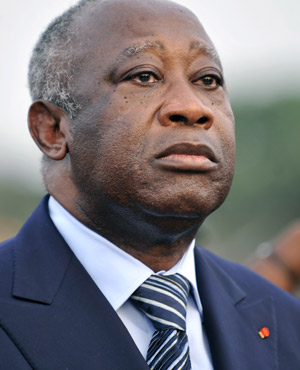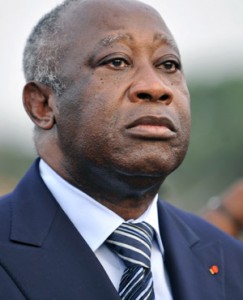

ABIDJAN, Côte d’Ivoire – Laurent Gbagbo, who has served as president of Côte d’Ivoire for 10 years, has always had a special connection to the United States.
“I visited the United States many times,” he recalled in an exclusive interview with the National Newspaper Publishers Association (NNPA) News Service. “The first time was in 1980.” As part of his study abroad, he visited New York, Washington, Boston, Philadelphia, and Memphis, which holds a special place in his heart.
“I visited Memphis, the city of the blues,” he recalled. “…I saw B.B. King in Memphis, with his big earring and his guitar. I saw him perform. I saw John Hooker. I saw him perform. But, the artist I loved dearly and I have all of his documented life is Ray Charles.
“Ray Charles’ life is a real defiance of nature. This is a man who when 5 years old, lost his brother. The seventh year, he became blind. Fifteen years, he lost his mom and his dad. So, when he was 15, he could not see, he had no parents, but when he died in 2004, he was one of the richest performers in the world. This is what I call a fighter. I like people who fight to make it in life, who start from scratch and reach the top level of their life. The fight of his life is more important to me than his voice.”
Gbagbo also said he was inspired by civil rights fighters in the U.S.
“When we were young, we listened to everything. I listened to Cassius Clay, who became Muhammad Ali. I listened to Carmichael – Stokely Carmichael – whom I met before he died. I met him in Senegal. He was in Guinea, where he married Miriam Makeba. I listened to Malcolm X and then Martin Luther King.
“For us young Africans who were far from the United States, we didn’t know what was the best attitude, the best path to follow to end what was not an inside problem to America. It was a worldwide problem, the problem of segregation of Blacks. We are Black so we felt concerned about what was happening in the United States.”
And, he paid special attention to Dr. Martin Luther King, Jr.
“Among all the problems we have, Martin Luther King has indicated one important way to resolve the problems: triumph without war,” Gbagbo said. He said he noticed how King used non-violence in dismantling racial segregation in the U.S. and how South Africa, to a less extent, used non-violence to eradicate apartheid.
“Black Americans should not think that the teachings of Martin Luther King are only for them,” he said. “It’s a teaching. It has to be implemented, it give results, extraordinary results.”
And when Gbagbo visited America, he made an extraordinary effort to visit Memphis.
“In Memphis, I saw the motel where Martin Luther King was killed,” he recalled. “We went to see the room. There were some flowers at the door where he was shot. After that, I saw that the place had been changed into a foundation, a Martin Luther King Foundation. It’s a good thing.”
Gbagbo recently announced that he has asked Charles Steele, Jr., immediate past president of the Southern Christian Leadership Conference (SCLC), the organization co-founded by King, to create the Charles Steele Jr. Peace and Nonviolence Center in Abidjan. Gbagbo said he would be the first volunteer to undergo special training in nonviolence.
Once that’s established, he won’t have to make so many trips to Memphis to rekindle the memory of Dr. King.

Be the first to comment